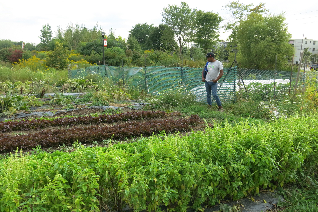Keep gardens open petitions - Ontario and Toronto

List of jurisdictions in Canada that are allowing community gardens to remain open
Toronto
Call to the City of Toronto:
Keep Community and Allotment Gardens Open
To: Toronto City Council and City of Toronto Parks, Forestry
and Recreation Division
As community gardeners and supporters of growing food in the city, we applaud the City of Toronto’s position that physical distancing is a top priority to control the spread of the COVID-19 virus.
In keeping with the spirit of protecting the health of all Toronto residents, we request that the City remove restrictions on community and allotment gardens on or before May 1, 2020 with the following stipulations:
- Gardens will only be open to gardeners, staff assigned to gardens and official garden volunteers. Gardens will be closed to the public and no gatherings will be permitted until physical distancing measures are lifted
- Gardens will adopt the Best Practices for COVID-19 in Community and Allotment Gardens in Toronto and develop site-specific plans to maintain physical distancing and sanitary procedures. Plans will be posted at garden sites and shared with all gardeners.
Rationale
Gardens have the capacity to maintain the physical
distancing and hygiene practices necessary to combat the spread of COVID-19.
They can also be powerful channels for educating the public about containment
measures.
Community and allotment gardens are not merely recreation
sites, they are important ways for low income and marginalized people
(particularly Black, Indigenous and people of colour) to grow the food they
need to stay healthy. When 28.4% of Black households face food insecurity
compared to 10% of White households[1], the
City must support any effort to improve food access for Black communities,
including increasing garden spaces available to Black and Indigenous
people.
The Province of Ontario recognized food production as an
essential service in its COVID-19 emergency declaration. Both food businesses
and non-profit organizations responsible for providing food are exempt from
closure.
Public safety can be protected better by addressing breaches
of physical distancing protocols when they occur, rather than closing down
facilities that are essential services for many people and that can and do
demonstrate good practices.
Other large cities, such as
New York[2],
have implemented these protocols, recognizing the importance of community
gardens and the ability to maintain public safety.
The City must ensure that its efforts to protect citizens do
not negatively impact people living on low incomes and BIPOC (Black, Indigenous
and people of colour) communities. We can’t afford to deepen the divisions in
our society, particularly during a public health crisis.
Posted on
